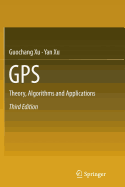Dr. Mark Everard
Professor Mark Everard is a Visiting Professor at Bournemouth University, as well as an Associate Professor of Ecosystem Services at the University of the West of England (UWE Bristol). He also works as a consultant, broadcaster and author. Mark is Vice-President of the Institution of Environmental Sciences (IES), a Fellow of the Linnean Society, an Ambassador to the Angling Trust and to WaterHarvest, and a science advisor to WildFish (formerly Salmon &Trout Conservation UK), Tiger Water ...See more
Professor Mark Everard is a Visiting Professor at Bournemouth University, as well as an Associate Professor of Ecosystem Services at the University of the West of England (UWE Bristol). He also works as a consultant, broadcaster and author. Mark is Vice-President of the Institution of Environmental Sciences (IES), a Fellow of the Linnean Society, an Ambassador to the Angling Trust and to WaterHarvest, and a science advisor to WildFish (formerly Salmon &Trout Conservation UK), Tiger Water (India) and a range of other intergovernmental and national bodies. His work on sustainable development, ecosystem services, nature conservation and natural resource management has extended over a half-century and across five continents in both the developed and developing worlds. Mark has worked directly on sustainability issues with the chemicals sector for over a quarter century, developing challenges and strategies in partnership with businesses and trade associations that have traction with both practice and policy. This advisory work in the chemicals sector with governments and businesses has taken him from America to Australia, Africa and Asia as well as Europe. In addition to his work in academia, formerly in government, with businesses and in the NGO sector, Mark is also a communicator with a wide portfolio of systems and sustainable development activities across a range of media including written (43 books and over 140 peer-reviewed scientific papers to date), social media and with broadcasters including frequent contributions to television and radio. See less




